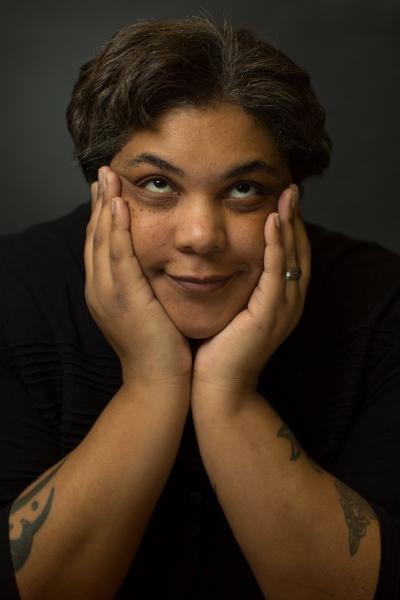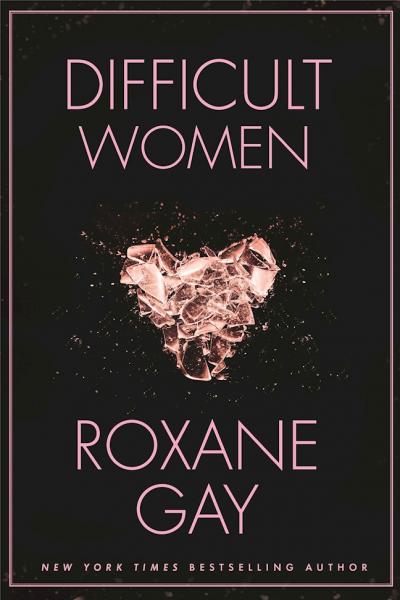- Categories:
Roxane Gay to Address Diversity in Bookselling During Wi12 Opening Keynote

Bestselling author and social commentator Roxane Gay will present the opening keynote on Saturday, January 28, at Winter Institute 12. Gay’s talk, which will take place at the opening breakfast, scheduled from 7:45 a.m. to 9:00 a.m. in the Nicollet Grand Ballroom at the Hyatt Regency Minneapolis, will focus on how people can proactively address the need for more diversity of both representation and thought in the book industry and beyond.
Gay is the author of the novel An Untamed State (Grove Press), the essay collection Bad Feminist (Harper Perennial), the multi-genre collection Ayiti (Artistically Declined Press), and the comic Black Panther: World of Wakanda (Marvel). Her newest title, Difficult Women, a collection of short stories, was published by Grove Press this month; Hunger: A Memoir of (My) Body will be published in June by Harper.
In addition to her books, Gay, an associate professor of English at Purdue University, has written for the Guardian, the Wall Street Journal, Salon, Time, McSweeney’s, NPR, and other publications; following the contentious November election, Gay penned an opinion piece, “The Audacity of Hopelessness,” for the New York Times.
Here, Gay discusses the effect of her own work on readers, as well as how indie bookstores can foster conversation among the readers visiting their stores.
 Bookselling This Week: What will be the focus of your opening keynote at Winter Institute?
Bookselling This Week: What will be the focus of your opening keynote at Winter Institute?
Roxane Gay: In part, I will be talking about how white people need to start taking the initiative in addressing diversity of representation and thought in publishing, bookselling, popular culture, and the sociopolitical realm, rather than waiting for guidance, instruction, or permission from people of color.
BTW: In the wake of the November election, indie booksellers have been providing centers for discussions within their communities. Do you think that indie bookstores can play a unique role in helping to broaden horizons, foster discovery and dialogue, and provide analysis and insight about the fractious issues polarizing the country?
RG: Absolutely. Bookstores are often the beating heart of a community. I cannot think of a better place to have difficult but necessary discussions that offer space for a multitude of perspectives and voices. That’s certainly what books, at their best, do.
BTW: As booksellers focus on their roles in their communities in a reenergized way, what steps can they take to ensure they appear open and welcoming to people of all walks of life?
RG: They can do outreach to the populations they don’t often see in their stores by advertising in more than just the local alt newspaper. They can make sure that their spaces are accessible. Many smaller bookstores aren’t that accessible, by virtue of space limitations, certainly, but they can try to be sure that people of all sizes and abilities can navigate through their stores. They can make sure that readers from all walks of life can see themselves represented in the books the store is selling. They can also hire a diverse range of booksellers.
BTW: Much of the success of your career is owed to the honesty of your books, essays, and talks, as well as what you share on social media. Why do you feel your stories are important for people to hear?
RG: I don’t know that my stories are important for people to hear but I do think more women and people from marginalized communities need to give voice to their experiences. So many people take for granted that everyone experiences life in the same way but such is not the case. The more we open ourselves and share our stories, the more, I hope, we can be empathetic and inspire empathy in others.
BTW: The short stories in Difficult Women feature women in fictionalized but very real and often troubling situations. What was your experience like writing this book on the heels of Bad Feminist, in which you tackle the cultural issues surrounding the nature of being a woman through your real-life experiences?
RG: I actually wrote most of the stories in Difficult Women before I wrote the essays in Bad Feminist. I’m a fiction writer, first, in my heart and this was the first book I ever tried to sell. Six years later, this little book is making its way into the world. I simply tackle cultural issues in both my fiction and nonfiction but in my fiction, I’m trying to tell a damn good story whereas in my nonfiction, I’m trying to create active change.
Gay will present the opening breakfast keynote on Saturday, January 28, from 7:45 a.m. to 9:00 a.m. in the Nicollet Grand Ballroom at the Hyatt Regency Minneapolis. From 9:15 a.m. to 10:15 a.m., booksellers will gather with colleagues to talk about issues inspired by Gay’s plenary during the Bookseller Discussion Groups.
See the full Winter Institute schedule here.

